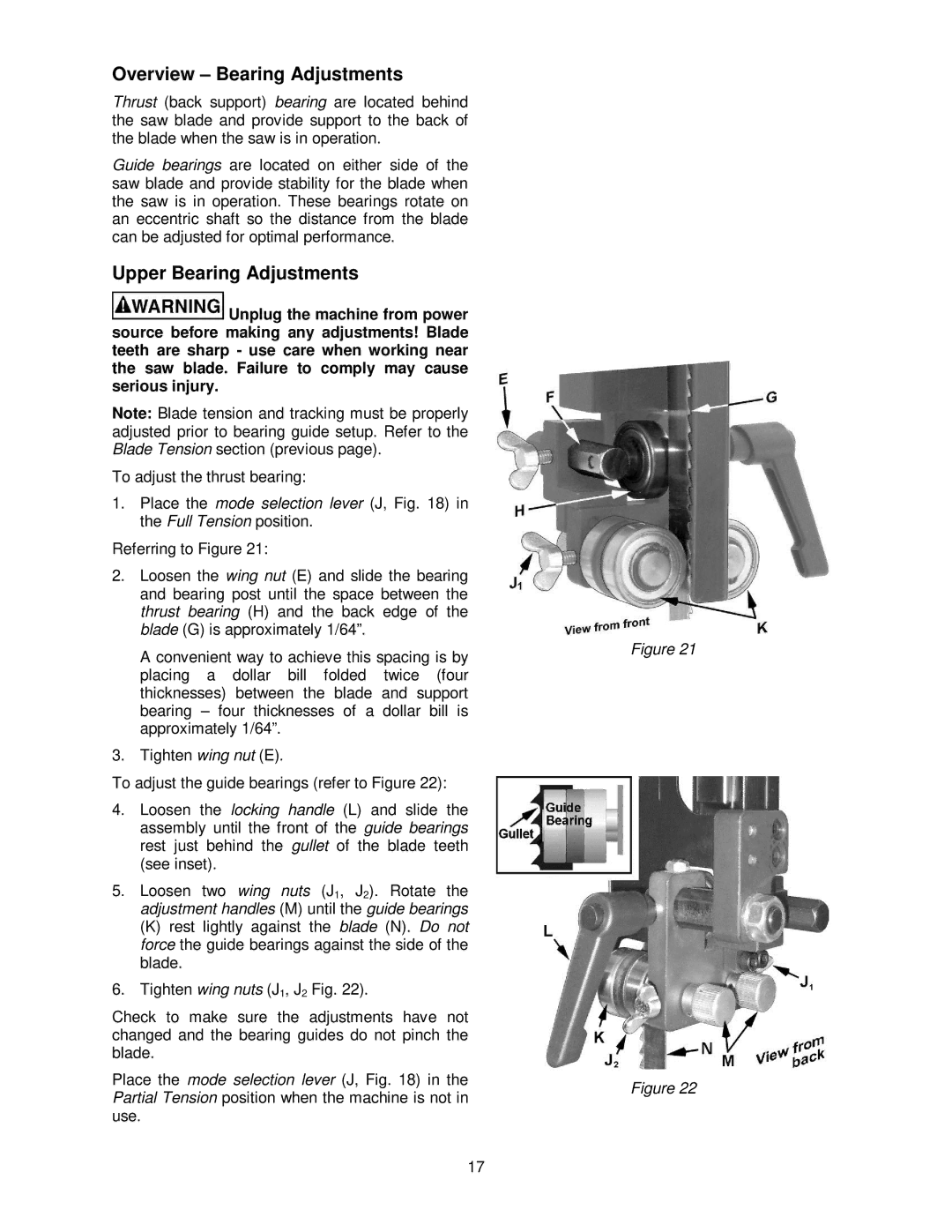JWBS-20QT, 18QT-3, JWBS-18QT, 20QT-5, 20QT-3 specifications
Jet Tools has long been recognized as a reliable name in the woodworking and metalworking industries, offering a variety of high-quality tools tailored for both professional craftsmen and enthusiastic hobbyists. Among their product range, the Jet Tools 20QT-3, 20QT-5, JWBS-18QT, 18QT-3, and JWBS-20QT stand out due to their innovative features, technologies, and stellar performance.The Jet Tools 20QT-3 and 20QT-5 are notable for their robust cast iron construction, ensuring stability and durability while handling heavy workloads. The 20QT-3 model comes equipped with a powerful 2 HP motor, providing ample performance for a variety of applications. It also features a versatile tilting blade system allowing precise angles for your cuts. Meanwhile, the 20QT-5 offers an enhanced motor capacity, boasting a 3 HP motor, further increasing its efficiency and capability in demanding tasks. Both models feature a large capacity of 20 quarts, ideal for extended projects where consistent performance is key.
The JWBS-18QT is another gemstone in Jet's lineup, designed specifically for woodworkers needing precision and control. With an 18-inch throat capacity, it accommodates larger workpieces with ease. Its heavy-duty construction minimizes vibration, leading to more accurate cuts. The JWBS-18QT incorporates Jet’s exclusive blade tracking technology, which ensures optimal blade alignment and reduces wear, improving the lifespan of the blade.
In addition to the 18QT, Jet offers an enhanced version, the JWBS-20QT. This model boasts a superior throat depth of 20 inches, allowing even more versatility for larger projects. It includes advanced features like an easy-to-use quick-release blade tension, making blade changes faster and more convenient, and an integrated dust collection port that helps to keep your workspace clean and free of debris.
The 18QT-3 model focuses on performance in a compact package, providing portability without sacrificing quality. It incorporates a sturdy base and adjustable height settings that allow it to adapt to various work environments, making it an excellent choice for smaller workshops or job sites.
In summary, the Jet Tools 20QT-3, 20QT-5, JWBS-18QT, 18QT-3, and JWBS-20QT represent the pinnacle of woodworking machinery. Their combination of durability, advanced technology, and user-friendly features make them ideal for both professionals and serious enthusiasts looking to achieve exceptional results. With Jet Tools, you can be assured of high performance and reliability in every project.

